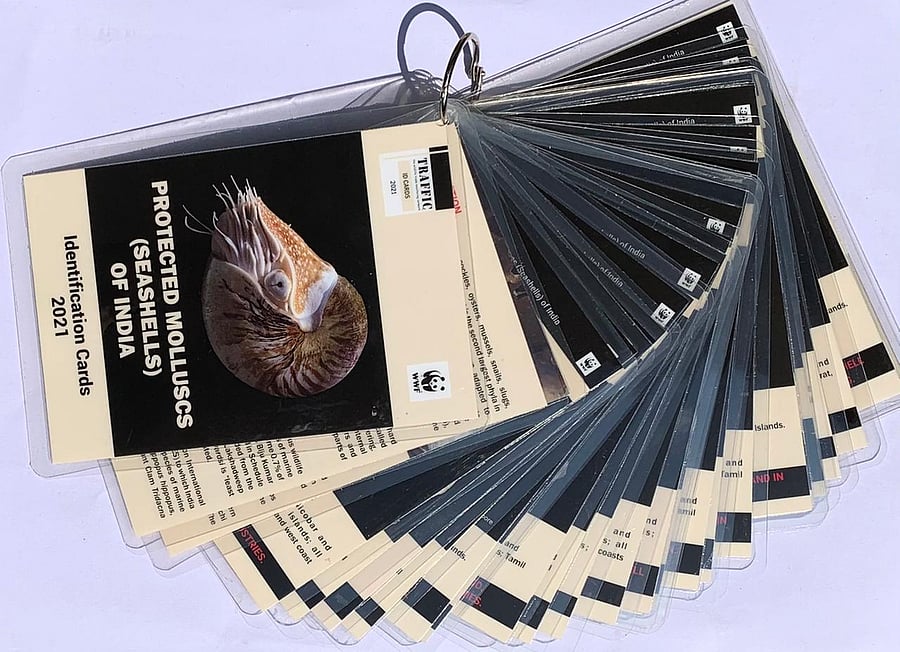
World Wildlife Fund India and wildlife trade monitoring network TRAFFIC have developed new identification tools to identify marine mollusc species accurately to monitor seashells trade in India and strengthen action against traffickers.
India’s seashell market is driven mainly by its demand for curios: for making accessories like buttons and combs, lampshades and fashion articles, and other decorative items.
TRAFFIC research into seashell seizures between 2009-2019 indicates a sizable amount of ongoing illicit trade, with the weight of reported seizures across the country during this period totalling more than 97,000 kg.
Discussions with enforcement agencies reveal that the challenges in curbing illegal seashell trade in India are two-fold.
First, only a limited number of seashell species are protected under India’s Wildlife (Protection) Act, 1972. Only 24 of almost 3,400 species of marine molluscs (soft-bodied animals that remain enclosed in their shells) found in India are legally protected from exploitation and illegal trade.
The second challenge is related to the correct identification of species encountered in the illegal wildlife trade.
TRAFFIC’s ongoing analysis of seashell seizures for the period of 2009-2019 found that almost a third of seized seashell species could not be correctly identified to the species level by first-level enforcement officers. This leads to wrongful seizures, faulty case reports and ultimately, low conviction rates in instances of illegal trade.
In a statement, Dr Saket Badola, Head of TRAFFIC’s India Office and co-author of the ID tools said, “Seashells are sold openly not just at markets in coastal regions of India, but across the country. Correct identification of seized species is essential to better enforcement as it helps secure commensurate convictions through courts. We are hopeful that the new ID tools, probably one of their kind in India, will aid wildlife law enforcement officers in their initiatives to protect and conserve marine molluscs”.
Authored by Dr Deepak V Samuel; Dr Saket Badola, Dr R Ravinesh; Dr A Biju Kumar and Dr Merwyn Fernandes, these new guides provide vital information about marine molluscs protected under India’s Wildlife (Protection) Act, their legal and conservation statuses, natural distribution, key identification features and the threats faced by them.
In the form of ID cards and posters, the new ID tools will be made available to wildlife law enforcement agencies, including the Forest Department, Police, Border Security Force, Customs, DRI, and others.
